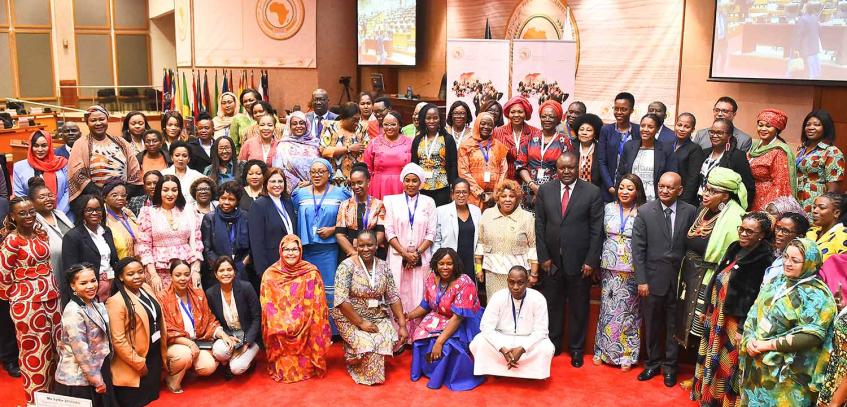Despite significant progress in terms of gender equality in Africa, more needs to be done to truly empower the continent’s young women.
This was one of the key messages message on the second day of the 13th Pan-African Parliament’s (PAP) Conference on Women’s Rights held in Midrand, South Africa held under the theme: “Women empowerment and inclusion in Governance.”
According to the Guest of Honour the Rt. Honourable H.E. Nosiviwe Mapisa-Nqakula, there has been noticeable progress to reverse gender equality, especially in terms of women's leadership in politics and the economy. However, she said that for women in unskilled positions, the situation remains dire.
“Moreover, the progress in advancing women’s rights is not reflected in the political leadership of some member states. More importantly, it is not reflected in the boardrooms of the corporate world, and this needs to change,” she added.
Dr. Mohamed Djakek Eddine Benabdoun, the Focal Person of the State Reporting Procedure of the African Commission on Human and Peoples' Rights, concurred and said that women are still unrepresented, especially in high government positions and in the private sector.
“In the absence of a political will, the transformation will not happen. It is critical to have more women in parliaments, as it is a fact that a lack of women in parliament is a sign of bad governance,” said Dr. Benabdoun.
“Bad governance often results in gender discrimination and women suffer the most in these countries,” says Ms. Mpiwa Mangwiro, Manager for the Policy and Advocacy unit SONKE Gender Justice. She adds that gender inclusivity is important to strengthen democracy. “In order to strengthen democracy, one of the critical tools is the fight against corruption, and it has been proven that women play an important role in fighting corruption,” she says.
Unfortunately, Ms. Mangwiro states that women still face abuse despite being powerful agents of change. “We need solid laws and policy to further advance women’s rights,” she says.
According to Hon. Lucia M.G. dos Passos, 3rd Vice President of the PAP, the empowerment and capacity building to advance women is not only the responsibility of women. “Discrimination against women and gender inequality are societal issues. Women’s rights are human rights,” she says.
“The biggest threat to Africa’s development is gender inequality,” says Rt. Honourable H.E. Nosiviwe Mapisa-Nqakula.
“Young black women should be empowered to bring about meaningful change and to build a future free of gender discrimination. It is critical that women become part of the leadership, also in the PAP. We want to be at the forefront of change,” Rt. Honourable H.E. Nosiviwe Mapisa-Nqakula concluded.
-Ends-








